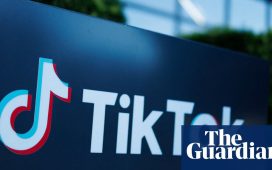You would think the pandemic might have made the rich a bit more cautious with their money. After all, even if the stock market has staged a remarkable rally since its spring plunge, economic prospects are still overshadowed by Covid-19. Well, that is not the view of John China, who says wealthy investors have lost little of their passion for tech start-ups, companies not generally known as low-risk.
As president of SVB Capital, the venture capital arm of SVB Financial Group, China is well placed to know, as his company is among the largest early-stage investment firms in Silicon Valley. “There was definitely a slowdown in March-April, but the numbers now look like we will see a pace of investment [from family offices] similar to the level of 2019, despite the second quarter slowdown,” he says.
“Frothy public markets are driving people to look for alpha elsewhere. Entrepreneurial clients are looking at tech and see that the pandemic has accelerated change, and see young tech entrepreneurs who want to jump on the bandwagon of disruption.”
When it comes to assessing the mood of ultra-high-net-worth families, though, this is far from the whole story. China is a tech venture-capital enthusiast: if he did not bang the drum for Silicon Valley, who would?
A quite different view comes from Tiger 21, an informal US-based group of more than 800 rich folk worth an average of more than $100m. In a summer survey, members said they were raising cash levels in their portfolios to an unprecedented high of 19 per cent, up from 12 per cent earlier this year. “This rise in cash is an extraordinary change. Statistically, this is the largest, fastest change in asset allocation Tiger 21 has seen,” says Michael Sonnenfeldt, Tiger 21 chairman. “Our members have gained liquidity and will not immediately reinvest in [other assets] in order to keep and build cash to weather this storm.”
The obvious conclusion from these two opposing views of wealthy people’s current investment habits is that the rich, like everybody else, are divided between pessimists and optimists — those who see the pandemic bringing recession, unemployment and high public debt, and those who see opportunities in the dislocation, particularly in tech.
There is a hint of tech optimism even in the Tiger 21 survey. Among the assets being sold to raise cash, private equity (which often includes tech-focused venture capital investments) ranks only fourth, on 12.5 per cent, well behind public equity (28 per cent), miscellaneous assets such as art (25 per cent) and property (18.75 per cent).
Clearly, public equity is easier to sell than private, so some investors may be holding on to off-market investments because they have no choice. But it could be that even among Tiger 21’s cautious cohort, tech retains its appeal, despite the troubled global economy.
This makes sense. In everything from financial services to education and entertainment, tech-based companies have made huge gains in market share during the pandemic. It is telling that Ant Group, the financial services arm of China’s Alibaba and a digital giant, has chosen this moment to launch an initial public offering.
In the 1929 Wall Street crash, the Dow Jones index recovered its previous high only in 1954. But industrial innovators — the tech stocks of the day — bounced back much faster: Dow Chemical regained its old peak as early as 1933; Honeywell and 3M did so by 1936.
It is probable that this time, too, a recession will not only do nothing to hinder successful tech companies but will accelerate their advance. Of course, that does not mean every Silicon Valley start-up will be a unicorn, nor that today’s high valuations are necessarily justified. But logic suggests there are still some diamonds waiting to be discovered by the clever, or lucky, investor.
Follow Stefan on Twitter @stefanwagstyl
This article is part of FT Wealth, a section providing in-depth coverage of philanthropy, entrepreneurs, family offices, as well as alternative and impact investment.








